-
Featured Items
-
Featured Resources
 Funding & Grants
Don't miss out on funding opportunities. Stay informed with our up to date online listings and email notifications.
Read More
Funding & Grants
Don't miss out on funding opportunities. Stay informed with our up to date online listings and email notifications.
Read More
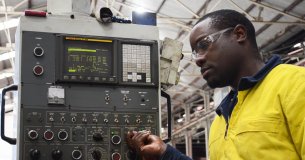 Skilled Migration
Our services help both applicants and employers, to learn more, develop plans, submit applications, and settle in.
Read More
Skilled Migration
Our services help both applicants and employers, to learn more, develop plans, submit applications, and settle in.
Read More
 Research and Analysis
Good research and analysis makes the case. How can our resources and services help your project or application?
Read More
Research and Analysis
Good research and analysis makes the case. How can our resources and services help your project or application?
Read More
 Information & Data Resources
With resources like REMPLAN, Regional Knowledge Base, and decades of data, discover how we can help your project.
Read More
Information & Data Resources
With resources like REMPLAN, Regional Knowledge Base, and decades of data, discover how we can help your project.
Read More
-
Stay InformedSubscribe to one or more of our regular email subscriptions, to be kept up to date on news and funding opportunities for the region
-
-
Our Region
- Our Region
- Regional Plan
- Regional Data
- Current Regional Issues
- Population Migration Analysis for 2016-21
- Job Vacancies Continue at All-Time High
- National Debt - What it Means for Our Economy?
- The True Value of Home Solar
- The Economic Impacts of Local Government Amalgamations
- State of the Regions Report 2014-15
- Antifragility - A different take on regional economic development
- Biohubs - Collaborative Waste Management
- Attracting New Residents
- Socio-Economic Impacts of the Murray Darling Basin Plan
- Murray Darling Basin Water Recovery
- Growing Businesses
- The Northern Inland Economy
- Geographical Overview
- Major Industry Sections
- Our Services
- Grants and Funding
-
Skilled Migration
- Skilled Migration
- Skilled Employer Sponsored Regional Visa
- Skilled Work Regional Visa (subclass 491)
- Temporary Seasonal Workers
- Designated Area Migration Agreement (DAMA)
- Helpful Information for Visa Holders
- Information for Employers
- Case Studies
- Payment Details
- Advice & Further Information
- Contact Details
- News & Events
-
Our Projects
- Our Projects
- Current Projects
- Skilled Migration
- Wool Works - Wool Training Schools
- Metal Works - Welding and Fabrication Schools
- Come On Inland
- Stories of Resilience
- Alt Brothers Beekeeping - Glen Innes
- Carelle's Toy Store - Glen Innes
- Greenhill Orchards - Arding
- Gwydir Meats - Warialda
- Kaputar Motors - Narrabri
- Moonbi General Store - Moonbi
- Sandstock - Tingha
- Sherelle Fashions - Tenterfield
- Sleepy Merino - Inverell
- Tenterfield Chamber of Toursim, Industry and Business - Tenterfeild
- The Welders Dog - Armidale
- Walcha Veterinary Supplies - Walcha
- AGCAP - Agribusiness Careers & Professions
- Northern Inland Regional Investment Profile
- Past Projects
- Digital Economy Strategy
- Business Growth Project
- Go Digital
- How to Start an Online Business
- Create Your Website Using Squarespace
- How to Edit Your Squarespace Site - Part 1
- How to Edit Your Squarespace Site Part 2
- Add a Shop to Your Squarespace Site
- Start a Blog and Find out What Customers are Searching
- 14 Tips For a Better Blog Post
- Which Social Media Platforms are Best for Your Business
- How to Use Facebook Effectively For Your Business – Part 1
- How to Use Facebook Effectively For Your Business – Part 2
- Instagram Tips for Business
- Catching Up, More Instagram & Dealing with Haters
- Getting Started with Twitter for Business
- Social Media Scheduling Tools
- How to Start an Etsy Shop – Part 1 – Research
- How to Start an Etsy Shop – Part 2 – Signup
- Online Security for Your Business
- Product Photography and Website Images: Your Guide
- 5 Tips to Improve your Productivity in your Business
- Best Online Business Resources
- How to Improve Your Communication Skills and Win More Clients
- NBN Coordinator
- Putting Power Back in the Regions
- Road Freight Study
- Town Audit Benchmarks
- Food and Wine
- Youth Survey
- Digital TV Switchover Assistance
- Northern Inland Transport Guide
- Live.Train.Work
- Northern Inland Innovation Awards
- Northern Inland Innovation Awards - 2017
- Northern Inland Innovation Awards - 2016
- Northern Inland Innovation Awards - 2015
- Northern Inland Innovation Awards - 2014
- Northern Inland Innovation Awards - 2013
- Northern Inland Innovation Awards - 2012
- Norther Inland Innovation Awards - 2011
- Prime Super Northern Inland Innovation Awards - 2010
- Prime Super Northern Inland Innovation Awards - 2009
- Northern Inland Innovation Awards - 2007
- Northern Lights Project
- NBN Smart Home
- Murray Darling Basin
- Moree Plains Business Workshops
- Namoi Investment Prospectus
- Industrial Land
- Bioenergy and Local Electricity Retailing
- Northern Inland Business Energy Assessment
- Skills for the Future
- Impacts of COVID-19 on Businesses
- Past Projects of NIRDB
- Aboriginal Employment and Enterprise in the Gunnedah Region
- Art as an Industry
- Aviation Survey
- Farm Forestry - Northern Inland Forestry Investment Group
- New England North West Film Strategy
- Northern Inland Excellence in Business Awards
- Food and Wine 2003 - 2008
- Prime Super Northern Inland Innovation Awards 2009
- Regional Business Networking Program
- Regional Leadership Course 2008
- Viticulture Strategy 2002-2003
- About Us
- Contact Us
- Other Resources
- Privacy and Legal
- Search
Back to Newsletters
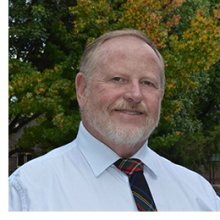
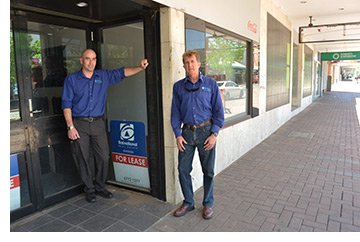
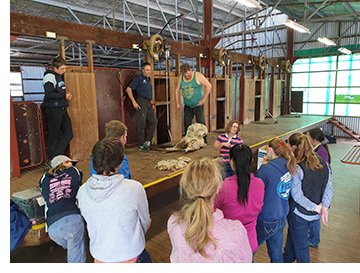


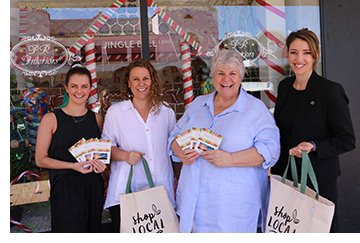
November 2019 Newsletter
Tuesday 12th of November 2019
In this Issue
- Welcome from the Chair
- Non-farm businesses, The Forgotten Drought Casualties
- Would You Like to Join Our Committee?
- Increased Drought Support
- Shearing School Continues to Inspire
- Tamworth exporter grows thanks to Zimbabwean migrants
- Skilled Migration Update
- Buy Regional this Christmas
- Love Local in Moree this Christmas
Welcome from the Chair

Dear Northern Inlanders,
Welcome to the November edition of our newsletter.
The ongoing drought remains at the forefront of just about everyone’s mind at the moment, with Christmas just around the corner, many families are feeling like they don’t have much to celebrate this year.
We have received a strong response to our business survey with more than 400 responses so far. The preliminary analysis by our senior economist David Thompson that you can read about below shows how much non-farm businesses in our region are suffering. While we welcome the recently announced increased assistance from the Federal Government, the massive impact the drought is also having on our non-farming businesses needs to be recognised. If you are a business that is being affected by the drought, I urge you to share your story through our survey before it closes this Friday the 15th of November.
Now is a time for our businesses to become innovative in the way that they can access new customers. To encourage Sydneysiders to purchase their gifts from regional communities, the NSW Government have launched the Buy Regional hub, which is free for regional businesses to participate in, and I encourage our businesses to do so too. There are also other initiatives for businesses such as Buy From The Bush, One Day Closer to Rain and Moree Plains Council’s new Love Local gift cards that you can read about below.
Regards,
Russell Stewart
Chair
Non-farm businesses, The Forgotten Drought Casualties

Our business survey, that has a very strong participation in the Northern Inland region, is revealing that Non-farm businesses are the forgotten casualties of the worst drought in living memory.
“We welcome the Federal Government’s drought assistance package announced today but sadly, it is lacking broader understanding. It shows that the economic realities in drought affected communities are not understood in Canberra. Today’s package includes loans of questionable value for what the Government has referred to as farm-dependent businesses. This refers to agricultural sub-contractors and rural suppliers. The definition must be broadened to cover all non-farm businesses in acutely drought affected communities,” said Russell Stewart, Chair of RDANI. “Our CBDs are in decline. Drought assistance is largely focused on farm enterprises and the latest drought package proves that the devastating economic impacts that the drought has had on other regional businesses remains unrecognised and undervalued.”
For RDANI Senior Project Officer David Thompson, the incomplete picture of the economic impacts of the drought became apparent after broad engagement with businesses throughout the region. “During the course of our work we meet business owners across all sectors of our local economies, not just the farmers,” he said. “Media coverage picks up on the obvious images of desolate paddocks, dry dams and hand-fed stock, yet the flow-on impacts to our other regional businesses is far less visual or newsworthy, but just as important. We decided to survey non-farm businesses to see how they are faring in the drought and what type of assistance they said would be most beneficial to them”.
So far, over 400 non-farm businesses have responded to the survey, answering questions about changes in turnover and staffing levels, and the types of government policy actions which would help them survive this and future droughts. Feedback came from all sectors of the economy, with particularly high responses from retail businesses, businesses which support agriculture and food and accommodation providers.
“The survey will close on November 15th, and we have commenced collating the results” said Mr. Thompson. “To date, we have looked at the impacts of the drought on non-farm business performance, and shortly we will examine what types of assistance these businesses would like provided by all tiers of government”.
Results examined so far revealed that the impact of the drought on non-farm business turnover (i.e. sales income) during the 2018-19 financial year was substantial. Interim results are that 59% of businesses report a turnover reduction in the range of 11-50%, 12% of businesses record a reduction of between 51-75%, and several businesses reported turnover reductions of 76-100%. Only 5.7% of non-farm businesses reported a turnover increase. Forward expectations are also poor with 54% of businesses expecting their turnover to be down by 11-50% in the next financial year.
Despite large reductions in sales revenue, impacts on staffing levels were less severe, with almost 50% of businesses reporting retaining all of their staff over recent years. Mr Thompson said this appears to be a conscious decision by business owners to retain quality staff that they have invested time and money to train and that are good fits to their team. Businesses were more likely to adopt other strategies to remain financially viable than losing staff which is a strong positive for regional communities.
Despite this, 48% of businesses had been forced to lay staff off due to the drought, with 34% reporting a reduction of 1-2 staff members, and 6% of businesses reducing staff by more than 5 employees. 51% of businesses expected to retain all staff next financial year, but 34% expected to have to have 1-2 fewer employees in 2019-20 and 12% expect to have 3 or more fewer staff.
Allowing clients more time to pay their accounts is a tactic businesses are often forced to adopt during drought conditions in order to support their customers. 42% of businesses reported outstanding customer accounts in the range of $1-30,000, while 11.5% were owed $30,001-$60,000 and 8% of businesses were owed more than $200,000.
“These results illustrate the hardship non-farm businesses are experiencing as a result of the drought” Mr. Stewart said. “Our Northern Inland economy is heavily dependent upon agriculture with 16% of output and 15% of employment coming from that sector, but when farming businesses suffer, so does the rest of the economy, as the cashflow to all the service and support sectors is impacted dramatically. As we further analyse these results, we will also reveal some practical ways in which governments can assist non-farm businesses during this drought”.
RDANI Executive Director Nathan Axelsson said the survey will remain open for input until November 15th and can be accessed through RDANI social media or directly, at:
https://www.surveymonkey.com/r/DroughtImpactOnBusinesses
“If you're a Non-Farming Business in the region please fill out the survey so that we can gather evidence for a call to action. It'll only take five minutes and can be completely anonymous. We look forward to getting the results in the hands of policy-makers, who appear to be floundering with reactive stop-gap measures at present” he said.
Would You Like to Join Our Committee?
Would you like to give something back to your community? Are you interested in leading/contributing to a committee to motivated locals who will focus on driving economic development in your region?
We are seeking regional leaders with vision, drive and business experience who are able to facilitate economic development opportunities and investment for our regional communities and create jobs and growth. Your networking skills will help build forums which enable consultation between business, industry and all levels of government and develop solutions for regional economic development.
Applications for a Committee member position are sought from highly motivated and experienced people who are knowledgeable about the economic strengths and challenges of the region.
An information pack for applicants is available.
For further information, please phone 02 6771 0700 or email rdani@rdani.org.au.
Applications close at 5pm Friday November 29th, 2019 and must be submitted by email to rdani@rdani.org.au
Increased Drought Support
Drought-hit farmers, small businesses and rural towns are set for an immediate cash injection to keep stock fed and watered, keep businesses open, keep locals in work and pump funds into local economies.
The Prime Minister said the next step of measures to combat the drought’s impact was ready to flow. “We are stepping up our drought response once again to meet the increasing needs as the drought’s effects also step up,” the Prime Minister said.
“Since the budget we have already committed an additional $355 million to step up our drought response. Today’s announcement triples this to more than $1 billion since the election, as well as more than $1 billion in new interest free loans, to see people through.”
“This is money into the pockets of all those farmers and graziers who know they have a future, but are currently struggling to keep their operations running as the crippling effects of this drought continue to bite that we’ve heard from out on the ground. They are backing themselves and we are backing them to make it through to the better days that will be ahead.”
“It’s not only farmers doing it tough in drought. Our next step in drought support also has an eye squarely on those communities feeling the strain as work dries up and spending in local stores slows down."
“There is no silver bullet to this drought. Each time we introduce further help we listen, we learn and we adjust our response because we know each community has different needs and priorities that need the resources and cooperation of every level of government.”
Deputy Prime Minister and Minister for Infrastructure, Transport and Regional Development Michael McCormack said the Government’s latest initiatives would deliver an extra $709 million worth of direct support.
“Communities across Australia are suffering the effects of the prolonged dry spell and today’s announcement is the next step in the measures to help ease the burden of the drought,” the Deputy Prime Minister said.
“This suite of measures go to the heart of what matters to these communities. From small businesses to primary producers, we are working with communities to take the pressure off one of the worst droughts in history.
“Not only is the Government continuing to respond as the drought progresses, but we are working on measures to assist in the recovery when the rains come, which includes the Government’s billion dollar investment in water infrastructure.
“By redirecting $200 million from the Building Better Regions Fund into drought communities and an extra $138.9 million into our Roads to Recovery initiative, we’re getting local projects and infrastructure work underway to keep finance flowing, trades in work and money rolling through local stores.”
The new Federal Government measures announced were:
- Extra $122 million for drought support to local councils - including all 10 in New England - to build local infrastructure, support jobs and regional economies
- Extra $138.9 million for additional Roads to Recovery funding
- New and existing drought loans will be interest free for 2 years to pay for immediate expenses like fodder, freight and wages. Years 3-5 will be interest-only
- New loans worth up to $500,000 each for small businesses dependent on agriculture to pay staff, buy equipment and refinance existing debt, also interest-free for 2 years.
- $10 million to support schools facing financial hardship as a result of ongoing drought conditions
- $5 million from the Community Child Care Fund will help assist centres that are experiencing decreased demand and financial pressure due to families from drought-affected areas being unable to pay for child care
- Redirecting $200 million into a Building Better Regions Fund special drought round, providing up to $10 million per project in local government areas
- 100 gigalitres of water from South Australia will be used to grow up to 120,000 tonnes of fodder as well as silage and pasture to secure supplies for the months ahead
Further information on the support available for drought-affected farms and communities and how to access it is available at http://www.agriculture.gov.au/drought/
The Government has also released the Drought Response, Resilience and Preparedness Plan which draws on the Drought Co-ordinator Major General Stephen Day’s report and the Government’s response, which was also released today. The Plan, Report and the Government’s response are available at http://www.agriculture.gov.au/ag-farm-food/drought/drought-policy.
Shearing School Continues to Inspire

Another successful Wool Works Shearing and Woolhandling School was held in Glen Innes this month with 16 high school students from Macintyre Highschool in Inverell, as well as Glen Innes High attending the three day workshop. The program provides high school students with an opportunity to experience the varied roles in the wool industry and gain some hands-on skills and is popular with students and teachers alike. Since the original trial in 2016, the innovative concept developed by RDANI has grown from strength to strength with ever increasing interest from schools around the region.
“The way that the students engage with the experience and are so keen to learn is brilliant to see. Not only are we encouraging our students to have an interest in a career in the agriculture sector, but we are also providing them with unique skills that they can utilise in the future.” said Executive Director, Nathan Axelsson
More Shearing Schools are planned for the next year and interested high school teachers or students from year 9 to 11 can contact our office on 67710700 or rdani@rdani.org.au.
Tamworth exporter grows thanks to Zimbabwean migrants

Tamworth manufacturer, Apollo Engineering is a quiet achiever in the advanced manufacturing sector of Northern Inland NSW. In challenging times, the business is expanding and achieving strong growth, with domestic and global markets. “It would have been very difficult for us to grow our business as rapidly as we have without the input of our five skilled migrants,” Apollo Engineering Managing Director Dave Errington said.
“We specialise in manufacturing industrial cleaning equipment for domestic and international markets and have done so for 25 years. We have been expanding into such areas as the manufacture of food waste processing machines. We struggle to find the skilled trades people we need. Our four Zimbabwean workers have been a massive benefit to the business; to the culture in the workplace, as well as our productivity. Our workforce has grown to 36 and I expect we will need more skilled migrants as we continue to diversify and grow,” Mr. Errington said.
The Apollo Engineering story is our latest skilled migration case study. “Our Skilled Regional State Nominated visa program brought four metal trades workers from Zimbabwe. They came with a decade of experience in South Africa, a strong work ethic and a commitment to settle and integrate into the Tamworth community,” said Senior Skilled Migration & Project Officer Gary Fry.
Chair Russell Stewart lauded the case study as RDANI’s best illustration of why regional migration is vital to the economic development of Northern Inland NSW. “These four individuals from Zimbabwe have been a real win for Apollo Engineering, Tamworth and the region. As they describe in the case study video, settling in a regional community has been a big win for them also,” he said.
Beaming with delight at the home his family has found in Tamworth is first-class welder, Wellington Bigone. His wife also secured employment and his son plays soccer with the boss’ son. At the age of 43, Wellington still plays soccer with a local team and also participates in park run events. “Apollo Engineering is a great place to work. The people in this community and at work are helpful and supportive, which enabled my family and I to adapt and settle in really well,” he said.
Wellington said he did not know what to expect to find in regional Australia and knew even less about Tamworth. “To my surprise, we really loved it. We didn’t like big cities in South Africa, where I worked for 11 years. There were a lot of pressures, traffic and some crime. Tamworth is beautiful and the community is friendly. I am living just five minutes’ drive from the city centre to my workplace. I start work at five in the morning but only leave home at 4:45am.”
“Choosing regional Australia is a brilliant idea for a skilled migrant. We really appreciate the work of Regional Development Australian Northern Inland, the NSW Government and the Australian Government’s Department of Home Affairs. We really needed the support that we received. We want to take this opportunity to say thank you,” Mr. Bigone said.
Fitter/machinist Courage Munyakari described settling in Tamworth and working at Apollo Engineering as a ‘wonderful experience’. “It was better being a skilled migrant in this region than the city because in the city lifestyle is more expensive and people in the regions are more welcoming and they still live in communities,” he said.
First Class welder Komborero Anthony Chikonyera is very happy with how his ‘life-changing opportunity’ has worked out. “It is not very different to the work I did in South Africa but the technology here is more advanced. It is a big community and we got a lot of help to settle in, which is quite different to going to the city,” he said.
Fitter/machinist Maxwell Matandaudyi said that he found a very multicultural community in Tamworth. It doesn’t matter where you are coming from, in the community or our workplace, we are accommodated and accepted for who we are. I am gratefully to be in Tamworth,” he said.
View the video on the case studies section of the RDANI website: http://www.rdani.org.au/skilled-migration/skilled-migration-case-studies.php
Skilled Migration Update
The Skilled Regional (Provisional) visa (subclass 489) - first provisional stream completely closes down this Friday, 15th November and will be replaced by the Skilled Work Regional (Provisional) visa (subclass 491). While the Australian Government’s Department of Home Affairs officially commences this visa on Saturday 16th November 2019, the NSW State Government has delayed commencement of nominations until new points arrangements with the 491 visa have been clarified and a new nomination process has been developed, with aim of achieving better outcomes that the 489 visa. Unfortunately, we have not been able to get a start date for the 491 visa program but our colleagues in Sydney have advised that it will not begin until early 2020, hopefully January.
We are proud of our outcomes from the 489 visa, the difference it has made to our region and the support we have provided to skilled migrants coming here. Anyone who has not seen our case study videos is encouraged to check them out here.
The Regional Sponsored Migration Scheme (RSMS) involves a regional employer nominating a skilled migrant for the Direct Entry PR Visa subclass 187. We at RDANI have performed the Regional Certifying Body role in that process for many years. In this, we have assessed the employer and provided local-level advice to the Australian Government. The RSMS is being shut down. This Friday is the last day that RSMS employer nomination applications and 187 visa applications can be submitted to the Department of Home Affairs. That deadline does not apply to RCBs and we will continue to accept applications from employers and their Registered Migration Agents, however RCB advice that is older than three months past the date that the Department of Home Affairs receives an application is not generally considered to be validly current.
The Skilled Employer Sponsored Regional (Provisional) visa (subclass 494) commences this Saturday (16th November 2019), replacing the RSMS. Employer sponsorships will still need to get RCB advice and local advice or recommendation will continue to be a required consideration in the Department of Home Affairs decision in each case.
Buy Regional this Christmas

The NSW Government has launched a campaign to encourage Sydneysiders to help drought affected communities by purchasing their Christmas presents and food from businesses in drought impacted areas of NSW. Through the Buy Regional Hub customers can browse nine categories of business listings with links to their websites and discover some of the wonderful goods and services that regions like ours have to offer.
Deputy Premier and Minister for Regional NSW John Barilaro said the hub showcases regional shops and sellers together in one place, to make it easy for shoppers to find the perfect Christmas gift and support regional NSW. “Everywhere I go people tell me about the images they’ve seen and the stories they’ve heard of how drought is affecting people in the bush and that they want to do something to help, but they’re not sure how.”
“Every dollar you spend with a regional retailer or producer helps keep that small business afloat, supports jobs in that town and gets money flowing through the local economy, which is exactly what is needed while we wait for the drought to break.” Mr Barilaro said.
Regional businesses can participate in the Buy Regional hub and social media network for free by emailing the Buy Regional team.
Business can also utilise other initiatives that have been established to reach new customers from outside their communities, including the Buy From the Bush, One Day Closer to Rain and Thankful 4 Farmers.
Buy From The Bush founder Grace Brennan said she turned to social media to help businesses find new customers outside of their drought stricken communities and was amazed when the number of followers skyrocketed from zero to 26,000 in eight days.
“This all started as a hashtag on social media but it’s become so powerful because it’s a simple way for people in the city who want to spend their money in the bush to see beautiful things they like and buy them,” Ms Brennan said.
“Not everyone has an online presence but businesses are thinking outside the box. Just the other day I walked in on a business where the shopkeeper was showing dresses to a customer on a video call and she was picking out what she wanted. It just shows that there are so many people out there who want to help and it’s incredible that in such a short space of time that so many regional businesses are making connections with shoppers in the city and some have even sold out of stock.”
Facebook group One Day Closer To Rain is connecting people on the land who are struggling with drought, providing a life line for those who need to share their stories. The group has launched a marketplace to help regional people create income streams by selling their locally produced arts and design work to city people keen to help.
As well as buying gifts from regional retailers, Mr Barilaro encouraged Sydneysiders planning festive get togethers and Christmas Day feasts to consider buying meat, produce and hampers from regional NSW. “Favour the flavour of regional NSW and ask your Sydney butcher or greengrocer for meat, poultry and produce provided by NSW farmers or check out the Buy Regional hub for honey, preserves, veg, meat or even fully-stocked hampers, all sourced from our regions,” Mr Barilaro said.
Thankful 4 Farmers ambassador Matt Moran said in lieu of drought breaking rain, farmers across regional NSW need the support of the grocery buying public. “As a fourth generation farmer I know firsthand the blood, sweat and tears that goes into producing our food during times of drought and every product purchased will show our farming and rural communities how much they are valued,” Mr Moran said.
Love Local in Moree this Christmas

Nearly 100 businesses across the Moree Plains Shire will participate in the new Love Local Moree Card program, launched this month by Moree Plains Shire Council, encouraging residents to shop locally this Christmas.
Love Local Moree Cards can be purchased online as well as at local “load-up stores” in Moree, Mungindi and Pallamallawa and can then be used multiple times at a variety of participating stores located in Moree and surrounding villages.
Mayor Katrina Humphries has praised the Love Local Moree Cards saying, “We are so proud to bring this initiative to the Plains. We know our retail and hospitality sectors are hurting and these cards are a unique way of providing some much needed sales for local businesses within and surrounding the Moree Plains.
“This unprecedented drought is taking a major toll on businesses and their families as well as our community at large. With Christmas quickly approaching, Love Local Moree Cards are a way for family and friends from afar to give a gift that gives many times over. There is not a lot of spare funds around for our local families; a Love Local Moree Card allows them to enjoy a little Christmas cheer but also supports our local businesses.” Cr. Humphries said.
“As nearly 100 businesses are participating, the gift cards shine a light on how many services and boutique stores we are fortunate to have operating within our Shire. I encourage local residents and their friends and families living outside of the Shire to purchase a Love Local Moree Card this Christmas and support the local businesses that have supported our community for years.”
Gift recipients will be able to spend their money on a wide variety of goods and services from Moree Plains Shire including adult and children’s fashion and footwear, gifts and homewares, art & framing, hair and beauty, cafe and dining, jewelry, fuel and groceries, car servicing and detailing, health and leisure, kitchen supplies and agriculture supplies, plus many more.
Council’s Acting Economic Development and Grants Manager Mrs. Susannah Pearse is enthusiastic about response from local businesses coming on-board, “There is no cost to businesses to participate, with Council funding the administrative costs to launch the initiative so local participating businesses will directly financially benefit from purchases through the Love Local Moree Card.”
The full list of the participating stores can be found on the Moree Plains Shire Council’s website.
Featured Grants and Funding Opportunities
Below are some featured grants and funding opportunities from the multitude of open grants listed in the Grants and Funding Opportunities area of our website. Our website is updated weekly with new listings and updates and all are applicable to our region, so it is a great resource if you are looking for funding for a specific project.
You can also sign up to our Business and Infrastructure Funding Opportunities and the Community Grants and Award Programs newsletters through the simple form located on the left-hand side of our website: www.rdani.org.au, to receive monthly summaries of currently open grants.
Safer Communities Fund
Closes: 10th of December 2019
Value: Unspecified - $10,000 to $500,000
Run By: Australian Government Department of Home Affairs
The Safer Communities Fund Round 5 Infrastructure grants provide schools and pre-schools, places of religious worship, community organisations and local councils with grants of up to $1 million for crime prevention initiatives aimed at reducing crime, violence, anti-social behaviour and/or other security risks driven by racial and/or religious intolerance.
Project activities can include:
-
Infrastructure activities, such as installing:
- fixed or mobile CCTV cameras
- security lighting
- fencing and gates
- bollards
- external blast walls and windows
- security and alarm systems
- public address systems
- intercoms and swipe access.
- Employing or hiring security guards, licensed by the relevant state or territory agency, for schools or preschools.
Regional Airports Program
Closes: 12th of December 2019
Value: Unspecified - $20,000 to $5 Million
Run By: Australian Government Department of Infrastructure, Transport, Cities and Regional Development
The Regional Airports Program will improve the safety and accessibility of airports or aerodromes in regional areas of Australia by supporting critical air infrastructure that will:
- improve the safety of aircraft, operators and passengers using regional airports or aerodromes
- facilitate improved delivery of essential goods and services such as food supplies, health care and passenger air services
- improve the connectivity of Australia’s regions to domestic and global market opportunities
- meet the operational requirements of aeromedical and other emergency services in the region.
Infrastructure Grants
Next Round Opens: 18th of November
Next Round Closes: 9th of December 5pm
Future Round Opens: 16th of March 2020
Value: Up to $300,000 depending on project area
Run By: NSW Government Office of Responsible Gambling
The NSW Government offers grants to communities across NSW to support the building, renovation and fit-out of infrastructure. Funding is available for arts and cultural infrastructure, sport and recreation infrastructure and projects that assist communities with essential infrastructure and disaster readiness.
To be eligible for funding, applications must meet eligibility conditions including, the project location, the applicant and project benefit, purpose and development status. There is also a requirement for local government applicants to match funding.
Infrastructure Grants can be used toward the costs of construction, alteration, renovation, completion and fit-out of buildings and community infrastructure in the following areas:
- Arts & Culture: $50,000 to $200,000 available per project
- Disaster Readiness & Community Infrastructure: $10,000 to $200,000 available per project
- Sport & Recreation: $100,000 to $300,000 available per project
What's On in the Northern Inland
Tingha Tin Festival
Friday 15th to Saturday 16th of November
Tingha
Eat Drink Live New England
Friday 15th to Saturday 16th of November
Inverell
Nundle CWA Art Exhibition and Sales
Friday 15th to Sunday 17th of November
Nundle
Walcha Motorcycle Weekend
Friday 15th to Sunday 17th of November
Walcha
Horns, Hooves & Harleys Rodeo
Saturday 16th of November
Walcha
Country Halls Tour
Saturday 16th of November
Glen Innes
Dog’s Day Out
Saturday 16th of November
Armidale
Nundle Lions Twilight Christmas Market
Saturday 16th of November
Nundle
Premer's Car and Bike Show
Saturday 16th of November
Premer
The Brain Foundation Christmas Fair
Sunday 17th of November
Tamworth
Choose Inverell Festival of Christmas
Monday 18th of November to Wednesday 25th of December
Inverell
Christmas in the Mall
Thursday 21st of November
Armidale
Farmers Community Connect
Friday 22nd of November
Narrabri
Christmas in the Highlands
Thursday 28th of November
Glen Innes
Gunnedah Christmas Fair
Friday 29th of November
Gunnedah
Cinema Under the Stars
Friday 29th of November
Tamworth
No Cods Cod Classic
Friday 29th of November to Sunday 1st of December
Inverell
Cinema Under the Stars
Saturday 30th of November
Armidale
Carols in the Park
Wednesday 4th of December
Uralla
Seniors Christmas Concert
Thursday 5th of December
Tamworth
Rotary Lions Christmas Carnival
Thursday 5th of December
Tenterfield
Community Christmas Carols
Friday 6th of December
Moonby
Burren Junction Under the Stars
Saturday 7th of December
Burren Junction
Pilliga Xmas Tree
Saturday 7th of December
Pilliga
Raindance Campdraft and Rodeo
Saturday 7th of December
Glen Innes
Carols in the Park
Saturday 7th of December
Tamworth
Christmas at Twilight
Friday 13th of December
Moree
Carols on the Wright Centre Lawns
Sunday 15th of December
Armidale
Related Pages







 Latest News
Latest News
